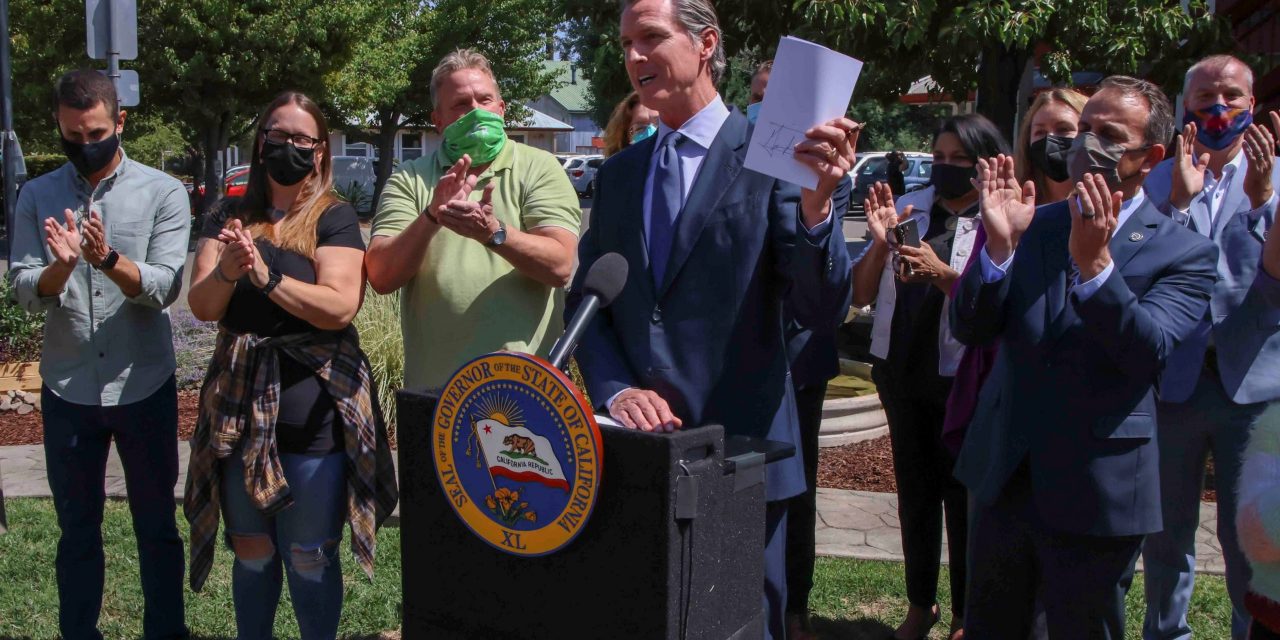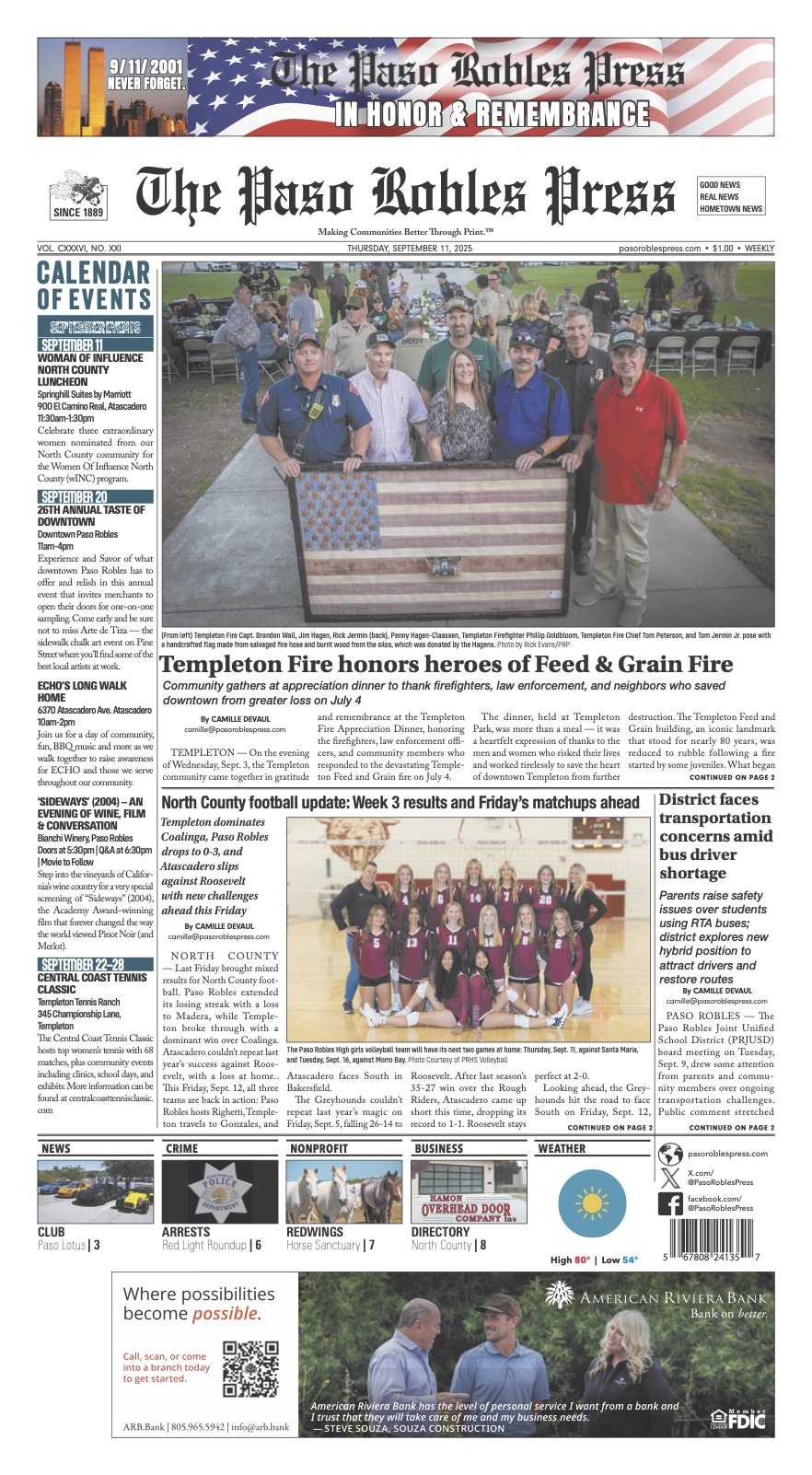$12 billion investment to tackle homelessness, focused on behavioral health housing and solutions to tent encampments
SEBASTOPOL – At a Homekey site in Sebastopol on Jul. 19, Governor Gavin Newsom signed the largest funding and reform package for housing and homelessness in California history as part of the $100 billion California Comeback Plan.
The package includes $10.3 billion for affordable housing and $12 billion over two years towards tackling the homelessness crisis head-on and helping tens of thousands of people off the streets while also demanding greater accountability and more urgency from local governments.
The new homelessness funding includes $5.8 billion to add 42,000 new housing units through Homekey—a national model for homeless housing. $3 billion of this investment is dedicated to housing for people with the most acute behavioral and physical health needs.
“I don’t think homelessness can be solved – I know homelessness can be solved,” said Governor Newsom. “We are going all-in with innovative solutions that we know work – with a focus on creating housing to support people with severe mental health challenges, and with more money than ever to move people out of encampments and into safer situations. With record investments tied to strong accountability and efficiency measures, California will continue to build on the groundbreaking success of Homekey, changing the lives of tens of thousands of Californians for the better and supporting communities across the State.”
The legislation signed, AB 140, which also includes $2 billion in aid to counties, large cities, and Continuums of Care through the Homeless Housing, Assistance, and Prevention grant program (HHAP). To qualify, recipients must follow strict accountability measures and submit a local homelessness action plan that includes quantifiable, data-driven goals that jurisdictions must commit to meeting.
$10.3 Billion Affordable Housing Package
- $850 million incentivizing infill development and smart growth
- $800 million to preserve the State’s affordable housing stock
- $100 million promoting affordable homeownership
- Additional funding to scale up the State’s efforts to create more Accessory Dwelling Units, build more housing on state-owned excess land and invest in farmworker housing
$12 Billion Over Two Years to Confront Homelessness Crisis
- $5.8 billion for Homekey over two years, creating more than 42,000 new homeless housing units
- $2.75 billion for the Department of Housing and Community Development
- $3 billion for the Health and Human Services Agency to create clinically enriched behavioral health housing and funding for the renovation and acquisition of Board and Care Facilities and Residential Care Facilities for the Elderly.
- $2 billion in HHAP grants over two years with strong, new accountability requirements for local governments
- $1.75 billion to unlock up to 7,200 units of housing in the pipeline for extremely low-income families and people exiting homelessness
- $150 million to stabilize participants in Project Roomkey hotels
- $50.6 million for encampment resolution efforts
- $45 million for services and housing for homeless veterans
In addition to these investments addressing homelessness and housing affordability, the California Comeback Plan includes $1.1 billion to clean up the streets of California by partnering with local governments to pick up trash and beautify downtowns, freeways, and neighborhoods across California. The program is expected to generate up to 11,000 jobs over three years.
Earlier in July, Assemblymember Vince Fong (R-Kern County), Vice-Chair of the Assembly Budget Committee, issued the following statement regarding the Governors influx of funding.
“It does not fix the mismanagement at EDD – an essential service that many unemployed Californians rely on as their lifeline. It does not pay down the mounting Unemployment Insurance Fund debt that is owed to the Federal government – not a single dollar. Ignoring this debt not only increases taxes for employers but burdens our State’s economic recovery.
In addition, Fong stated, “By refusing to pay back $7.8 billion taken out of the Rainy Day Fund, this budget weakens the State’s preparation for the next inevitable economic crisis. Now is the time to plan responsibly and build up our reserves while reducing the burdens on small businesses and families. This unsustainable budget ignores the lessons learned from past mistakes and fails to address basics concerns for Californians.”
According to Governor Newsom, the California Comeback Plan seizes a once-in-a-lifetime chance to address long-standing challenges by taking on threats to the State’s future and ensuring every California family.















